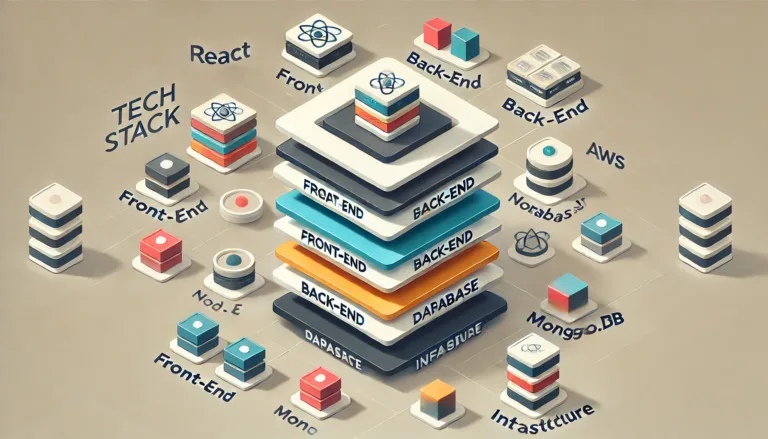Exploring Remote Software Engineering Jobs
Remote work in software engineering is where it’s at these days. Both companies and developers are leaning into this trend, enjoying the perks of flexible schedules and tapping into talent from around the globe.
Boom in Software Engineering Jobs
Software engineering is on fire, with the U.S. Bureau of Labor Statistics saying we’ll see a whopping 25% job growth from 2021 to 2031 (WGU). This rise is thanks to the growing need for tech in AI, IoT, robotics, and other cool automation stuff.
Here’s a snapshot of job growth in the field:
| Job Role | Projected Growth 2023-2033 (%) | Annual Openings |
|---|---|---|
| Software Developers | 25 | 140,100 |
| Quality Assurance Analysts | 17 | 140,100 |
| Testers | 17 | 140,100 |
Starting your journey? Check out our section on software engineering internships to get in the game.
Ups and Downs in Software Engineering
Upsides
- Flexibility: Remote work means you can kiss rigid schedules goodbye. You work when and where you want, which is fantastic for maintaining that sweet work-life balance. Hack Reactor says nearly 40% of software engineers crave fully remote gigs (Hack Reactor).
- Global Reach: No more location constraints! You can snag jobs from any corner of the world, and companies get to scoop up top talent, adding diversity and expertise.
- Cost Savings: Both sides of the table save money. No commute or relocation costs for you, and companies save on office expenses.
Downsides
- Communication Hiccups: Remote work can mess with smooth communication sometimes. Make good use of project management tools and chat platforms to keep everyone on the same page.
- Feeling Isolated: Sitting alone at home can get lonely. Regular virtual meet-ups and social activities can keep isolation at bay.
- Blurring Lines: Flexibility is awesome, but it can blur work and personal life lines. Set clear boundaries and stick to a routine to keep things in balance.
Thirsty for more? We’ve got you covered with our software engineer job responsibilities segment.
Remote software engineering offers a treasure trove of opportunities for those who can handle its quirks. Weighing the perks against the challenges is the key to a thriving remote career. For those eyeing the top spots, dive into our section on senior software engineer positions.
Essential Skills for Success
Landing that remote software engineering gig isn’t just about having a slick resume. It’s a blend of top-notch skills and a knack for rolling with the punches in an always-changing industry. Let’s break it down into two crucial areas you gotta nail.
Tech Skills and Never-Stop Learning
First things first—ya need to know your tech inside out. As someone gunning for a software engineer spot, I make sure to get cozy with the must-know programming languages and tools. This stuff is the bread and butter of the job. Don’t just take my word for it; even the folks over at WGU will tell ya, software engineering ain’t just about knowing your way around code. It’s about diving into all things tech.
Here’s a quick rundown of the essential tech skills:
| Skill | Why It Matters |
|---|---|
| Programming Languages | Speak Python, JavaScript, and Java fluently. They’re your ticket to handling various projects. |
| Version Control Systems | Git is your BFF for keeping your code neat and playing nice with others. |
| Database Know-How | SQL and NoSQL should roll off your tongue; they’re critical for any data-heavy app. |
| Cloud Computing | AWS, Azure, Google Cloud—you gotta know how to deploy and scale apps like a pro. |
| Cybersecurity | With hackers lurking everywhere, you need to lock things down tight. Even the Bureau of Labor Statistics says so. |
Riding the Wave of Industry Trends
This line of work moves fast, and ya gotta keep up with the latest and greatest. AI, IoT, and automation? These aren’t just buzzwords; they’re shaping your future. So, it’s worth your time to stay updated and widen your horizons.
Some hot trends to keep an eye on:
- Artificial Intelligence (AI): AI isn’t just sci-fi anymore. Engineers are building apps with machine learning and deep learning like it’s no big deal.
- Internet of Things (IoT): From smart fridges to electric cars, IoT is exploding. Engineers in this space are hot commodities (Bureau of Labor Statistics).
- Cybersecurity: With cyber-attacks on the rise, knowing how to protect networks is a big deal. It’s a goldmine for those with the right skills.
- Cloud Computing: More businesses are shifting to the cloud, so knowing your way around cloud services is non-negotiable.
- Automation and Robotics: Get good at coding for automation and robotics, and you’ll be in high demand.
Honing these skills and keeping up with where the industry’s heading puts you on the fast track to remote software engineering success. Learning never stops, staying in the loop, and staying nimble gives you the edge in this game.
Thinking about where to start? Dive into some software engineering internships to get your hands dirty and get familiar with actual software engineer job responsibilities. If you’ve already got some miles under your belt, check out senior software engineer positions for a peek into the next level of roles and what they entail.
Remote Work in Software Engineering
Working from home is all the rage in software engineering these days. It’s like having the best of both worlds—flexibility and tech-savvy goodness, right from your couch.
Why Everyone’s Remote
Remote jobs for software engineers are skyrocketing. A big chunk of engineers, 66% to be exact, are already working fully remote, with 80% wanting to keep it that way (Coursera). This isn’t surprising given how tech advances make it easier and cultures shift favorably towards more balance and less office time.
Perks of Working from Anywhere
So, why are so many folks loving remote work in software engineering? Let’s break it down:
- Flexibility: You call the shots on your schedule. Sleep in, work late—whatever floats your boat. Work from your favorite cafe, the beach, or your cozy bed.
- Higher Paychecks: Remote gigs often come with better money. High demand means companies gotta pay up, especially if you’re in a smaller city (Hack Reactor).
- More Job Hunting Grounds: You’re not stuck with local companies. Peek into industries worldwide for countless opportunities. Hunt those jobs on platforms like Glassdoor, Indeed, or LinkedIn (ZDNet).
- No More Commutes: Kiss traffic goodbye. Forget the stress of rush hour, save time, and keep your sanity intact.
Here’s a quick glance at what makes remote work in software engineering so great:
| Perk | Why It Rocks |
|---|---|
| Flexibility | Work anytime, anywhere, in your PJs if you like |
| Higher Paychecks | Better salaries, especially outside big cities |
| More Opportunities | Global job market means endless possibilities |
| No More Commutes | More time and less stress without battling traffic |
Want to become an ace at applying for remote software engineering jobs? Check out our section on crafting an impressive application.
Being clued up on why remote working is hot can shape your career decisions. For those eyeing senior roles, peek at our details on senior software engineer positions.
Nailing Remote Software Engineering Jobs
Ready to snag a remote software engineering gig? It all boils down to knowing where to hunt and how to wow ’em with your application. Let’s break it down.
Where to Look for Jobs
The first step is finding the right spots online. Here’s where you’ll find those hidden gem listings:
- Company Career Pages: Check out the company websites directly. They often post jobs that might not appear anywhere else.
- Job Aggregators: Sites like Glassdoor and Indeed reel in listings from all over the place.
- LinkedIn: Not just for networking but a gold mine for job seekers, especially in tech.
Here’s a quick cheat sheet:
| Platform | Why It’s Great |
|---|---|
| Company Websites | Direct link to job openings at specific companies |
| Glassdoor | Combo of job listings and company reviews |
| Indeed | Just about every job you can think of, with filters for remote work |
| Mix of networking and job searching rolled into one |
Crafting a Killer Application
Got some juicy job listings? Time to craft an application that’ll make ’em sit up and take notice:
- Resume & Cover Letter: Make ’em pop by tailoring them to the job description. Use keywords that’ll get past those pesky applicant tracking systems (ATS).
- Portfolio: Online samples of your work are a must. Think GitHub repos, personal projects, or any showcase of your coding chops.
- Networking: Reach out to current employees on LinkedIn. A personal referral can really tip the scales in your favor.
- Show Continuous Learning: Boast about recent courses or certifications. It shows you’re not just keeping up but staying ahead.
Want more details on the nitty-gritty? Check out our section on software engineer job responsibilities. Interested in moving up? We’ve got info on senior software engineer positions too.
By scouting the right places and crafting a top-notch application, you’ll be well on your way to landing that remote software engineering job. Remember, keeping your skills sharp and your network active are key moves in this game. Get out there and make it happen!
Mastering the Job Hunt
Hunting for remote software engineering jobs requires more than just hope—you need a game plan and a touch of finesse. Let’s slice through the essentials to help you ace interviews and seal the deal with irresistible offers.
Ace Those Interviews
Cracking interviews isn’t rocket science if you go in prepared. Here’s my toolkit:
-
Know the Company: Dig deep into what the company stands for, their latest projects, and their accolades. This shows you’re genuinely interested and not just looking for any gig.
-
Get Tech-Savvy: Sharpen your blade with fundamental algorithms, data structures, and system design. LeetCode, HackerRank, and CodeSignal are your training grounds.
-
Run Mock Interviews: Just like rehearsing for a play, practice makes perfect. Pair up with a buddy or use platforms like Pramp to polish your performance.
-
Nail Behavioral Questions: The STAR (Situation, Task, Action, Result) method is your compass here. Share stories that highlight your problem-solving and teamwork chops.
-
Understand the Role: Know the lay of the land. Brush up on software engineer job responsibilities to tailor your answers to the job at hand.
-
Show Remote Prowess: Talk up your expertise with remote tools like Slack, Zoom, Jira, and GitHub. Mention how you stay productive and in sync with your team.
Some common questions to prepare for include:
| Question Type | Example |
|---|---|
| Technical | “Explain how a binary search algorithm works.” |
| Behavioral | “Tell me about a time you squashed a nasty bug. How did you handle it?” |
| Remote Work | “How do you keep track of your tasks and ensure effective communication when working remotely?” |
Seal the Deal: Negotiating Offers
Landed an offer? Sweet! Now, let’s make sure you get what you’re worth.
-
Do Your Homework: Research typical pay and benefits for remote software engineers. Glassdoor and Levels.fyi are gold mines for this info.
-
Think Beyond Salary: Look at the whole package—salary, bonuses, stock options, health insurance, retirement plans, and learning opportunities.
-
Negotiate Smart with Help: Services like Levels.fyi can help you bump up your offer without the risk. They’ve helped folks raise their salary by over $30k, and they’ve got your back for three months.
-
Leverage Multiple Offers: If you’ve got multiple offers, use them to your advantage. Let potential employers know politely and see if they can match or beat the offers.
-
Find the Fit: Money’s important, but so is finding a role that aligns with your career goals, has a great culture, and offers growth opportunities. Check if the role fits your long-term career plans.
-
Highlight Remote Perks: Emphasize the importance of remote work benefits like home office stipends, internet reimbursement, and flexible hours. These can make a big difference.
| Negotiation Item | Example Ask |
|---|---|
| Salary | “Given my skills and industry standards, a salary of $120,000 seems fair.” |
| Stock Options | “Can we explore the possibility of adding more stock options to the offer?” |
| Benefits | “I’d appreciate support for setting up my home office, like a stipend for ergonomic furniture.” |
For more in-depth pointers, from creating a standout application to finding the best job search platforms, head over to our software engineering internships section.
Future Trends in Software Engineering
Peeking into the future of software engineering isn’t just nerd-worthy — it’s practical. Knowing what’s coming up can give you a leg up if you’re on the job hunt. Let’s break down the big changes and what you can do to stay ahead.
What’s Hot in Software Engineering
Software engineering is on fire, and it’s not cooling down anytime soon. The Bureau of Labor Statistics says jobs in software development, testing, and quality assurance will jump by 17% from 2023 to 2033. That’s fast growth, with about 140,100 new gigs popping up every year.
Here’s what’s driving this:
- Artificial Intelligence (AI): AI isn’t just sci-fi anymore. Companies need brains behind the bots, so AI developer jobs are booming.
- Internet of Things (IoT): Your smart fridge and connected thermostat need programmers. This area is growing rapidly.
- Cybersecurity: Hackers don’t sleep, and neither do the folks making sure your data is safe.
- Robotics and Automation: From factories to your living room, robots need coders to keep things running smoothly.
| Sector | Growth Rate (%) |
|---|---|
| Overall Software Engineering | 17 |
| AI Development | 25 |
| IoT Applications | 20 |
| Cybersecurity Software | 22 |
| Robotics and Automation | 18 |
If you’re gunning for job security and opportunities, software engineering is a sweet spot to be in. (WGU).
Smarter Ways to Job Hunt
Looking for a job has changed a lot. Your dad’s way of walking into a company with a resume isn’t it anymore. Here’s how you can roll in today’s market:
-
Online Job Platforms:
Sites like LinkedIn, Indeed, and specialized tech job boards like Stack Overflow and GitHub Jobs are gold mines for finding gigs and networking. -
Networking:
Make friends in the industry. Join forums, hit up tech meetups, and attend virtual conferences. A friend of a friend might know about a job before it’s posted. -
Remote Job Boards:
Sites like We Work Remotely, Remote.co, and FlexJobs list jobs that let you work in your PJs. Remote work is huge, so these boards are worth checking out. -
Personalized Portfolios:
Stand out with a killer digital portfolio. Show off your projects and skills on platforms like GitHub. Employers want to see what you can do, so make it easy for them. -
Keep Learning:
Tech keeps changing, and you should too. Boost your skills with online courses from places like Coursera, Udemy, and edX. Stay up-to-date on what’s hot in software engineering. -
Customized Applications:
Stop sending the same resume everywhere. Tailor your applications to show why you’d be a perfect fit for each job. Highlight relevant projects and skills, and include a personalized cover letter.
These tips make job hunting smarter, not harder. For more on tweaking your application to stand out, check out our guide on crafting an impressive application. If you’re just starting out, peep our section on software engineering internships. And if you’ve got some miles on your career, see what’s up with senior software engineer positions.
So, there you have it. The future’s bright, and there’s plenty of room in software engineering for those willing to stay sharp and adapt. Now, go snag that next big opportunity!









